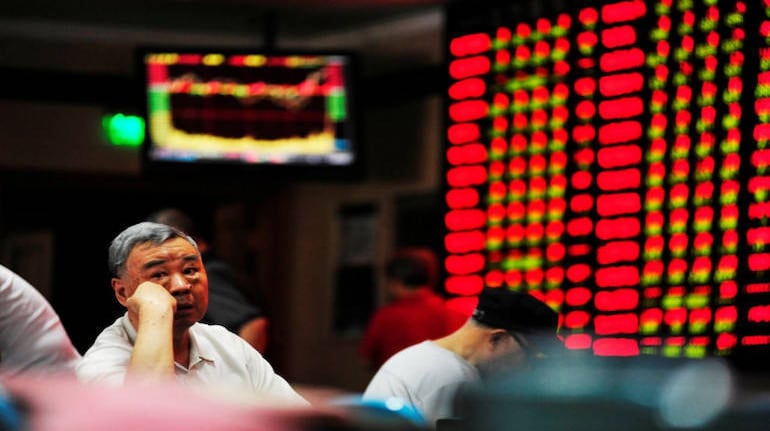Asian shares fell to their lowest level in more than 14 months, short-term US yields rose to a 23-month high and the dollar strengthened on Thursday after the Federal Reserve chairman announced plans for steady policy tightening.
At the same time, analysts at https://exnesslatam.com/metatrader-4/ believe rising investor fears over political tensions between Russia and Ukraine have exacerbated concerns over supply shortages in the energy market, leaving oil prices at multi-year highs.
In its latest policy update on Wednesday, the Fed indicated that it was likely to raise US interest rates in March, as many had expected, and reiterated plans to stop buying bonds this month before starting to significantly reduce its assets.

But in a subsequent press conference, Powell warned that inflation remained above the Fed's long-term target and supply chain problems may be more pressing than previously thought.
"There has been a marked shift in terms relative to the dovish statement and then relative to the hawkish press conference," said David Chao, global market strategist for Asia-Pacific (formerly Japan) at Invesco.
"Powell doesn't commit to the size or frequency of rate hikes or the timing of balance sheet cuts. I think that gives him a bit of room for manoeuvre as to how quickly and at what speed he wants to normalise monetary policy. in the US ... it's very data-dependent, and so we're certainly watching for other economic data to be released, especially inflation data, inflation expectations data, which I think could trigger a more aggressive tightening of monetary policy."
Fears that the Fed will focus more and more on fighting inflation have hit stock markets, derailing the rally on Wall Street.
Asian stocks also fell: the broader MSCI regional markets outside Japan fell 1.6 per cent in early trading on Thursday to their lowest level since early November 2020.
Hong Kong's Hang Seng index and Australian shares fell 2 per cent and Chinese blue-chips fell 0.2 per cent.
In Tokyo, the Nikkei fell 1.9%, reaching its lowest level since December 2020.
The policy-sensitive 2-year US bond yield jumped on expectations of Fed policy tightening, rising to a high of 1.1780% in morning trading in Asia, a level last reached in February 2020. The 10-year bond yield also rose from Wednesday's close, rising to 1.8548% from 1.846%.
The dollar rose on higher yields, lifting the US dollar index, which measures the exchange rate of the dollar against major peers, to 96.557.
The yen rose slightly to 114.57 and the euro fell to $1.1230.
Adding to global investor fears, the United States said on Wednesday it had chosen the diplomatic route to meet Russia's massive demands in eastern Europe as Moscow negotiates security with western countries and intensifies its military buildup near Ukraine with new exercises.
Concerns over tensions between Russia and Ukraine led to oil prices climbing above $90 a barrel a day earlier, a level last seen in October 2014.
Global benchmark Brent crude fell 0.2 per cent on Thursday, but remained just below $90 a barrel at $89.75. US West Texas Intermediate crude fell 0.2 per cent to $87.18 a barrel.
U.S. officials say they are in talks with major energy producing countries and companies around the world about possibly diverting supplies to Europe if Russia invades Ukraine, although the White House said it faces problems finding alternative sources of energy supplies.
Spot gold fell 0.1 per cent to $1,816.42 an ounce due to a stronger dollar.